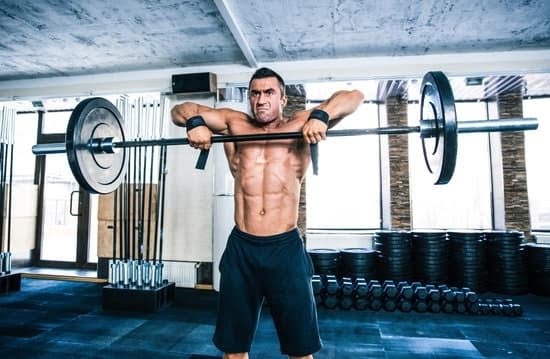Weight lifting flooring is an important addition to any home fitness equipment setup. It is ideal for any weight or strength training as well as bodyweight exercises because it provides a non-slip surface, and a cushion of protection against heavy weights which can cause damage to the floors below. Having a quality weight lifting flooring system in place will ensure your safety while exercising in the comfort of your own home gym.
Benefits of Using Weight Lifting Flooring There are many benefits to using weight lifting flooring such as providing additional stability when performing exercises with heavy weights. Quality flooring provides more support compared to regular mats or other types of soft exercise surfaces and reduces the risk of injury due to slip and fall accidents that may occur with regular floor surfaces.
Flooring Options for Home Fitness Equipment When choosing your weight lifting flooring, there are several options you can consider depending on your preference and budget. Rubber tiles are ideal for those looking for durability and comfort while foam mats provide more cushion and are easier on the joints during heavier exercises or drops from height exercises such as box jumps and burpees.
Another popular option is interlocking puzzle mats which provide a sturdy non-slip surface for working out at home, are easy to clean, lightweight and portable so they can be moved around easily when necessary.
The Benefits of Home Exercise with Weight Lifting Flooring
Weight lifting flooring is an essential piece of home fitness equipment that provides a safe and effective way to incorporate weightlifting into your home exercise routine. Not only does it provide protection from slipping, but it also helps to absorb some of the impact of dropping the weights.
This, in turn reduces the risk of potential injury, allowing for an efficient and rigorous weight-lifting session without having to worry about damaging yourself or your floor. Here are some key benefits that can be gained by using this type of exercise equipment:
- Protects you from slips – Weight lifting flooring offers a non-slip surface that ensures you will remain firmly rooted as you lift heavy weights, making it ideal even for beginners who may just be starting out.
- Reduces noise – Dropping weights can make loud noises that can be disruptive to other members of the household or those living in close proximity. Weight lifting flooring is designed to help deaden sound so you can concentrate on your workout without creating disturbances.
- Increased comfort – Weight lifting flooring helps cushion any impact caused by dropping dumbbells or weights, meaning less strain on joints and body parts when performing exercises.
In addition to providing a soft layer between the weights and the floor, weight lifting floor mats are extremely durable and built with long-term use in mind. Made with tough multi-layer foam construction which is shrouded with special vinyl coating suitable for daily rough use, they will not rip or tear even after many years of use.
This means they are easy to clean simply by wiping away any sweat left behind – ideal for keeping your home exercise area hygienic between every session.
Another big advantage lies in portability; these mats are usually lightweight and fold up small enough so they can be stored away quickly in closets or behind furniture before each workout – perfect if you’re short on space. This makes them ideal for both professional athletes looking to practice their moves at home or amateur gym buffs who are trying keep fit from anywhere in their living space.
Exploring Different Kinds of Weight Lifting Flooring
Weight lifting is a popular form of exercise for many people who find it not only enjoyable, but also beneficial for their overall health and wellness. To practice weight lifting safely and effectively at home, one should invest in proper flooring that can help protect weight lifters from falls and other injuries. Here are a few different kinds of flooring to consider for your home weight lifting needs:
- Workout Floor Mats: This flooring option is made with dense rubber material that provides the necessary traction and cushioning during workouts. Exercise mats come in various sizes and shapes, so they can easily fit around your weight lifting equipment or benches.
- Sports Tiles: These interlocking squares are designed with shock absorbent foam and can be used as an even base for various fitness equipment such as barbells, free weights, treadmills, elliptical trainers etc. They’re fairly easy to install and offer superior grip on the surface.
- Gym Turf: This kind of flooring is ideal if you want a realistic grass-like feel underfoot while working out with heavier weights. The turf is often backed with foam or carpet padding to provide an extra layer of cushioning when pressure is applied.
- Rubber Floor Mats: These exercise mats provide durable protection against falls while doing leg exercises such as squats and deadlifts. You can find anti-slip, noise-dampening options to reduce distraction during your workout sessions.
- Interlocking Foam tiles: Another popular choice to create an ergonomically correct surface for your workout area, these interlocking lightweight tiles are built to last long time due to their water resistant properties.
Choosing the Right Weight Lifting Flooring for Your Home Workout
Having the right flooring when exercise at home is essential for those who are looking to get the most out of their workouts. Having comfortable, sturdy weight lifting mat can make all the difference while you’re working out.
While there are many options for workout floor mats available on the market, finding the right one can be a difficult process. Here is an overview of some important things to keep in mind when looking for the best floor mat for your fitness equipment:
Durability
Durability should be high on your list when it comes to features you want in a weight lifting floor mat. Look for mats that are made from thick rubber materials and have a minimal amount of space between its panels. Mats with smaller panels are much less likely to tear or separate as time goes on, making them well worth any additional cost they may have.
Size
When choosing a weightlifting floor mat, size is also something to consider. Make sure that you get a large enough mat for your home gym space so that all of your workout equipment can fit without taking away from exercise space. This will help ensure that you feel as comfortable as possible during your workout routine and that you’ll have less risk of injuring yourself while using any free weights or machines in your gym area.
Price
Even if price isn’t always top priority when it comes to buying workout equipment, it’s still helpful to keep our budget in mind when shopping around for weight lifting floor mats. Weigh up each option’s pros and cons and look at the long-term costs involved when deciding which might be perfect for you and your exercise needs.
Things to Look For When Choosing Weight Lifting Floor Mats
- Durability
- Size
- Price
Home Safety Basics for Making a Home Gym Space
If you are making a home gym, having the right safety flooring is essential. It not only helps protect your floor but also provides grip while you exercise to avoid slipping and injury. Here are the basics for what you need to know when purchasing workout floor mat:
- Material:
- Size:
- Specialty Mats:
The Pros and Cons of Weight Lifting Flooring for Home Use
Having a weight lifting flooring at home can be a great source to increase fitness levels and achieve personal goals. However, it important to consider the pros and cons of having such equipment in order to make an informed decision before purchasing one.
Pros
- Provides the ideal environment for exercising and weightlifting
- Improves comfort when lifting weights
- Helps reduce damage to carpets and floors caused by dropping heavy objects
- Aids with noise reduction providing a peaceful atmosphere for exercise activities
Cons
- High initial cost coupled with installation costs.
- Multiple mats may be needed depending on weight exercises done in different areas.
- Needs frequent cleaning and sanitization as sweat or any other liquids might cause odors or lead to deteriorating performance over time.
- May require periodic replacement over time due to wear and tear.
Tips for Making the Perfect Home Workout Environment
When it comes to creating an ideal environment for working out at home, a floor mat is essential. Not only does it protect the floor from damage, but it also helps maintain balance when exercising and provides insulation from the cold.
With so many options available in the market, how do you know which one is best? In this article, we’ll provide tips on how to pick the perfect home workout floor mat and suggest some of the best picks on the market.
Choose Material Carefully
One of the most important factors to consider when selecting a workout floor mat is its material make up. Floor mats come in a variety of different materials such as wood, rubber, foam, carpet, and vinyl. Each type has its own unique advantages and disadvantages that should be considered when making your choice.
For example, if you are interested in something that is very durable and easy to clean then rubber or vinyl mats are the way to go. On the other hand, vinyl mats provide extra cushioning and insulation against noise while wood mats offer a more natural aesthetic and can help define a specific area for working out.
Size Matters
The size of an exercise floor mat will have a big impact on its usability as well as how much space it occupies within your home gym setup. When looking for an exercise mat, keep in mind that larger mats tend to stick around longer while smaller ones can easily be moved around or taken apart when not needed.
If your goal is to work out with multiple pieces of equipment then investing in an extra-large sized mat would be highly beneficial as it ensure all items have enough space around them without risking any potential damage from friction or scratches from movement across surfaces such as hardwood floors. If your main goal is simply having enough room for activities like yoga or Pilates then smaller versions are perfectly suitable too.
Look for Special Features
As technology advances so too do exercise floor mats with special features designed for enhancing user experience during workouts. Additional components such as textured surfaces may help increase grip during activities like Yoga while others may feature waterproofing making them ideal for outdoor use and rain protection if need be.
Certain manufacturers also incorporate light reflectivity into their designs allowing you to better see yourself during night time exercises – this could prove beneficial if you tend to practice HIIT workout classes around night time.
Conclusion
Having the right flooring is essential to completing a successful home exercise routine. Not only does it provide an extra layer of comfort, but it also has many other important benefits as well.
One benefit in particular is that exercise mats help cushion the impact of high-impact movements like jumping and running, ensuring that you don’t experience any joint stress or pain during your workout. Flooring can also provide stability to keep you from slipping or tripping while doing exercises, which is especially helpful if you are new to exercising or are using gym equipment such as free weights or resistance bands.
Another reason why flooring is so important for home fitness routines is because it serves as a barrier between you and any debris on the ground, like dust or dirt. Sweat can often build up with strenuous activity and without an adequately protective mat layer this can seep into the ground, causing staining or potentially even damage to a surface beneath it.
Finally, having appropriate flooring makes it easier to clean up after yourself once you’re done with your routine – simply remove the layers of aerobic mats and any excess dirt and sweat will easily slide off before your next session.
From protecting your joints during movements to helping with cleaning up afterwards: having the correct exercise mat flooring is integral for maintaining a successful routine in your home gym. Selecting either individual mats or more specialized weightlifting floors depending on what type of activities you plan to do will ensure that all aspects of quality physical health are covered every time without fear of injury or cleaning troubles later on down the line.
Once all these elements are combined together then nothing else stands between last rep goal.

Passionate about providing useful information to anyone with an interest in the field of Personal Training, I strive to pass on to our readers quality information and to answer any questions about Personal Trainers, the work they do and how to become one.





